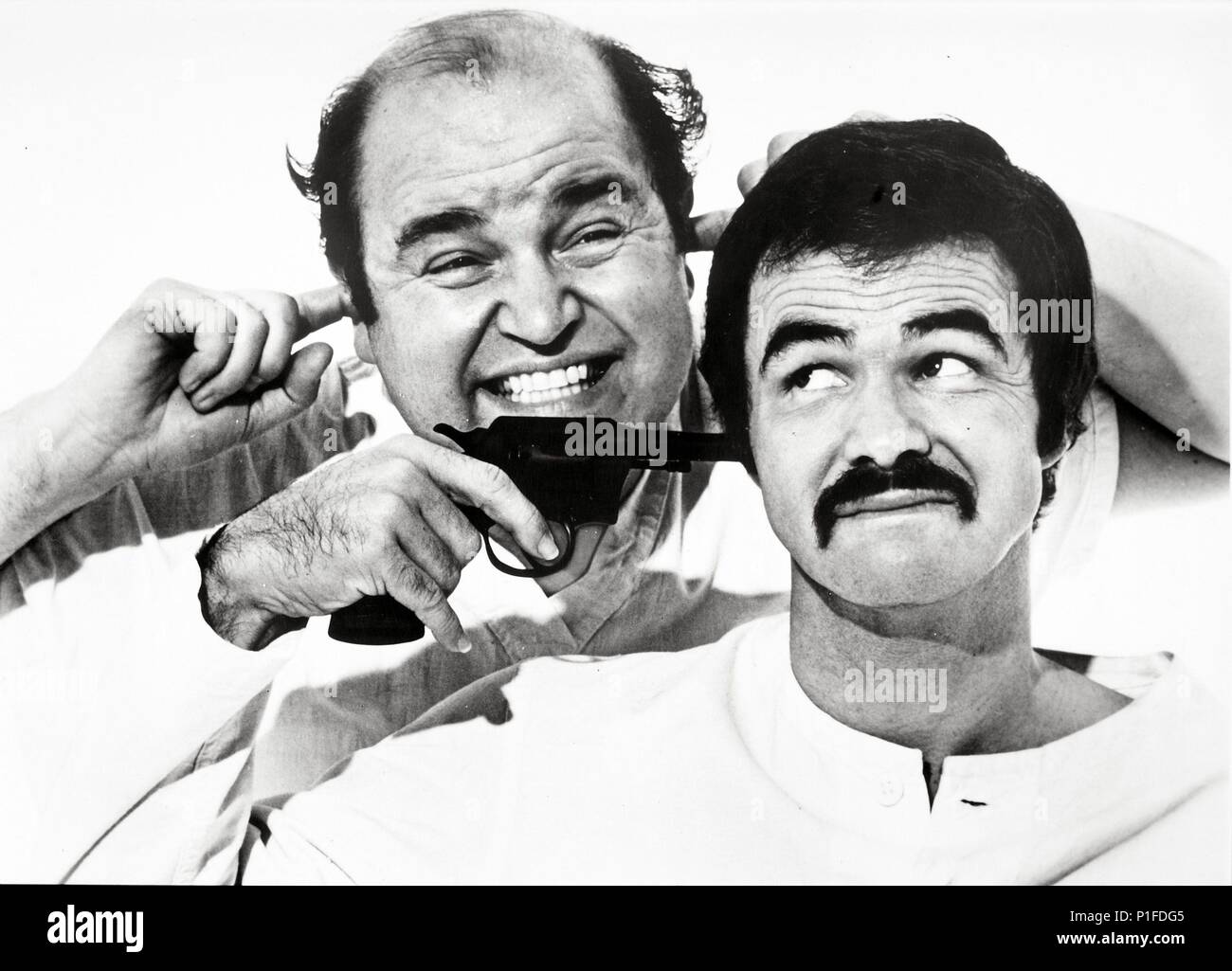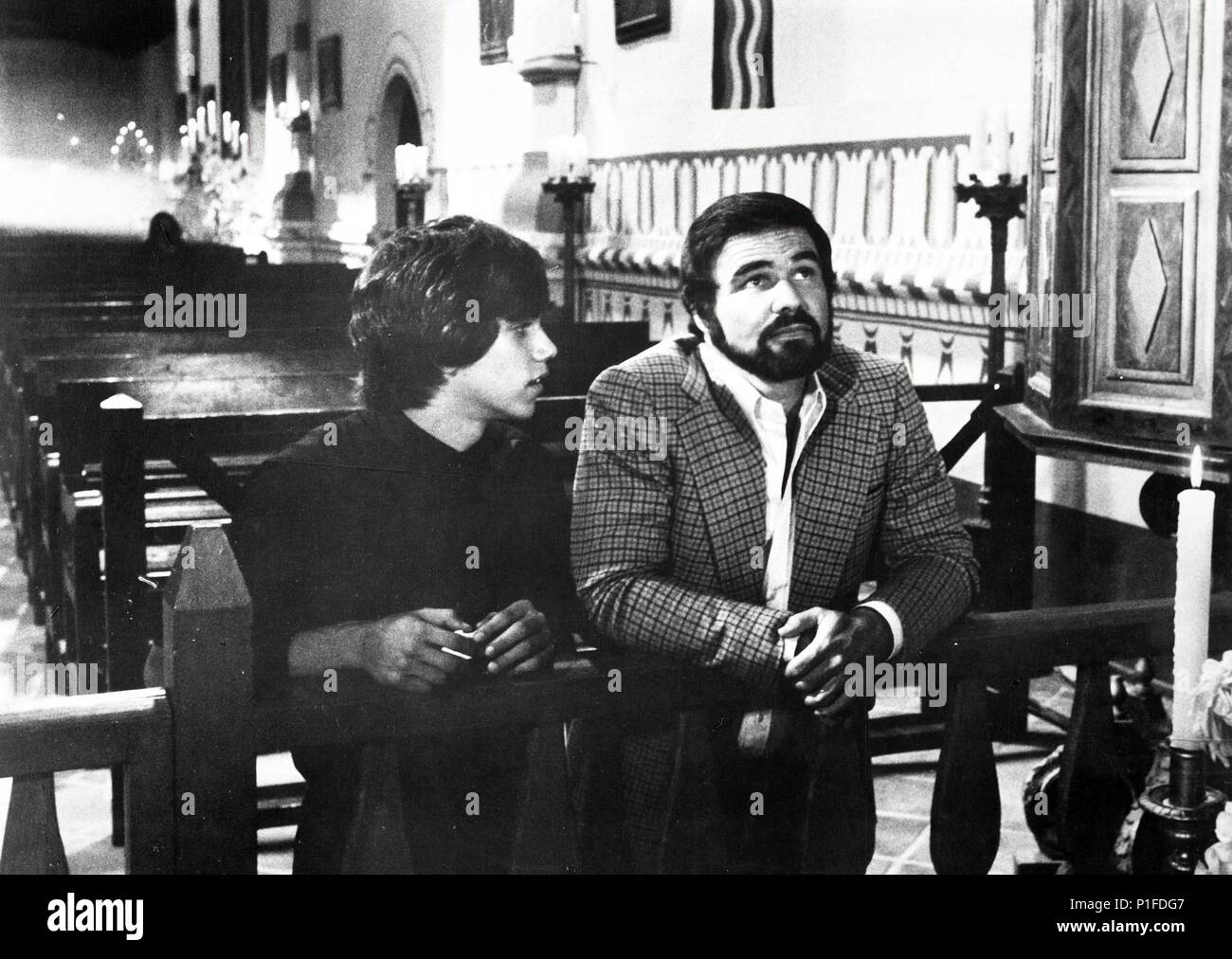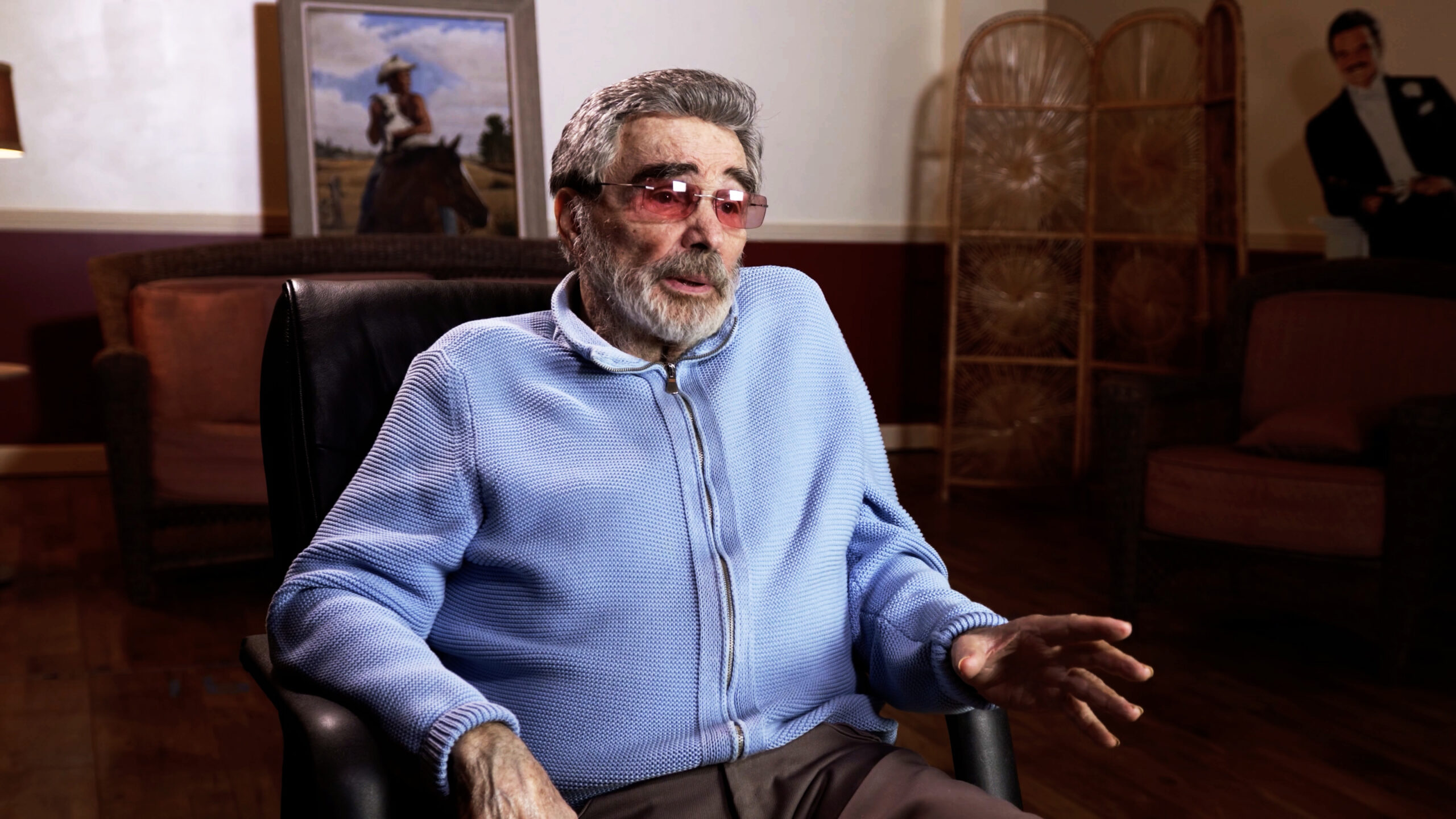Exploring The End Film Burt Reynolds: A Look Back At Dark Humor
When we think about Burt Reynolds, images of charming rogues, fast cars, and a certain playful swagger often come to mind, don't they? Yet, there's a particular film in his body of work that stands quite apart from those more typical roles. It's a movie that, in a way, tackles a very serious subject with a surprisingly light, sometimes uncomfortable, touch. This film, "The End," released in 1978, really explores what it means to face a final chapter. It's almost a deep look at how a person deals with a decision that feels like a definitive stop, much like how a computer program uses an 'end' command to finish its work, preventing it from repeating the same instructions over and over again.
This movie, "The End film Burt Reynolds," has always been a bit of an outlier. It’s not your usual action-comedy, and it definitely pushes boundaries with its subject matter. Reynolds, who also directed the picture, decided to tackle a very personal and often taboo topic, making it something that feels both very funny and, at times, very sad. It’s a bit like when you're working with text, and you expect a newline character at the close of a string, but instead, you get a space, as in Python's `end=' '`. It's a subtle shift that changes the outcome, creating a different kind of flow, a different kind of feeling.
For those who remember the late 1970s, Burt Reynolds was a huge star, very much at the peak of his popularity. He had a knack for connecting with people, you know? So, for him to choose a project like "The End" was a rather bold move. It was a step away from the blockbusters and more into something that asked bigger questions, something that explored the idea of a personal "end" in a very direct, yet comedic, way. It really shows a different side to his acting, a willingness to go to places that might make an audience think a little more deeply about what life means, and what it means when you consider bringing things to a close.
Table of Contents
- Burt Reynolds: A Brief Biography
- "The End" (1978) Film Overview
- Reception and Legacy
- Frequently Asked Questions about "The End film Burt Reynolds"
- Why "The End" Still Matters
Burt Reynolds: A Brief Biography
Burt Reynolds, born Burton Leon Reynolds Jr., was a very well-known figure in American cinema for decades. He had a career that spanned from the late 1950s right up until his passing. He was a football player first, you know, before an injury changed his path. That's when he decided to give acting a try. He worked his way up through television, appearing in various shows, slowly building a name for himself. It's like how a word boundary in a search pattern matches a position that is either preceded by a word character and not followed by one, or followed by a word character and not preceded by one; he found his unique position in the acting world.
His big break really came in the early 1970s with films like "Deliverance." That movie showed a serious side to his acting, a more intense side. After that, he became a box office giant, especially known for his charismatic roles in comedies and action films. He had a certain charm, a playful twinkle in his eye, that audiences just loved. He was, in a way, the quintessential leading man for a long stretch of time. He was also a very private person, even with all the public attention, which is a bit like an empty zip file – you know it's there, but its contents are not readily apparent until you try to access them.
He was a man who, like many, had his ups and downs in his personal and professional life. But he always seemed to bounce back, always finding a way to keep going. His presence on screen was undeniable, and he left a very significant mark on Hollywood. He was, honestly, one of those actors who just felt like a friend to many viewers, someone you could really connect with through his performances.
Personal Details and Bio Data of Burt Reynolds
| Full Name | Burton Leon Reynolds Jr. |
| Born | February 11, 1936 |
| Birthplace | Lansing, Michigan, U.S. |
| Died | September 6, 2018 (aged 82) |
| Occupation | Actor, Director, Producer |
| Active Years | 1957–2018 |
| Notable Works | "Deliverance," "Smokey and the Bandit," "The Longest Yard," "Boogie Nights" |
"The End" (1978) Film Overview
The film "The End" came out in 1978, a time when Burt Reynolds was, you know, a massive star. He was coming off hits like "Smokey and the Bandit," which was a very different kind of movie. So, for him to choose a dark comedy about a man trying to, well, end his life, was a pretty surprising choice for many people. It was a project that he felt very strongly about, a bit like a programmer feeling strongly about the correct use of an 'end' marker to close a case expression; it's essential for the whole thing to work right.
The movie really delves into a subject that most films at the time would not touch with a ten-foot pole. It asks questions about life, death, and what really matters when you think you're facing your final moments. It's a film that makes you laugh, but then almost immediately makes you feel a little uncomfortable about laughing. That's a very specific kind of humor, a bit like finding a strange character copy-pasted into your text that somehow still works.
This movie, "The End film Burt Reynolds," is a testament to Reynolds' willingness to take risks, to try something different from his usual fare. It shows a desire to stretch as an actor and as a filmmaker, to explore themes that are a bit more complex than simply outrunning the law or winning a football game. It's a film that, arguably, holds up as a unique piece in his filmography.
The Plot: A Darkly Comedic Journey
The story centers on Sonny Lawson, played by Burt Reynolds himself. Sonny finds out he has a terminal illness, and he's not very happy about it. Rather than let the illness take its course, he decides he wants to take matters into his own hands, to control his own "end," if you will. This decision sets him on a rather bizarre and often hilarious path, as he tries to find the right way to, you know, finish things. It's a bit like a computer program looking for a specific "end of central directory record signature" to confirm a file's integrity, but in Sonny's case, he's looking for a way to bring his own story to a complete and personal close.
His attempts are, well, not very successful. He tries various methods, each one leading to more chaos and unexpected situations. He even ends up in a mental institution, where he meets Marlon Borunki, a very interesting character played by Dom DeLuise. Marlon becomes his unlikely friend and, in a strange way, his partner in this unusual quest. Their interactions are a major source of the film's humor, showing a very human connection in a very dark situation. It's almost like two different lines of code, each with their own "end of line" symbol, suddenly finding a way to work together.
The film doesn't shy away from the serious nature of Sonny's decision, but it always finds a way to inject humor into the most unlikely moments. It's a very delicate balance, and the movie, in some respects, walks that line with a surprising amount of grace. Sonny's journey is a search for a final answer, a search for a way to control the ultimate conclusion of his life, which is a very powerful idea to explore through comedy.
Themes and Tone
"The End" explores some very heavy themes, obviously. It deals with mortality, the fear of death, and the very personal choice of how one faces their own final moments. But it does so with a very distinct dark humor. It's not a film that preaches or judges; rather, it tries to find the absurdity and the humanity in a situation that most people find very difficult to talk about. It's, you know, a really unique approach to a tough topic.
The tone shifts quite a bit throughout the movie. There are moments of genuine pathos, where you feel for Sonny and his predicament. Then, almost immediately, there's a laugh-out-loud moment, often from the sheer ineptitude of his plans or the outrageous behavior of the people around him. This constant shift keeps the audience on their toes, never quite sure whether to laugh or to feel a pang of sadness. It’s like using the `end` function in a spreadsheet; you start at one cell and then, depending on the direction you tell it, it goes until it reaches the edge of a group of cells with text, finding its own natural stopping point.
The film also touches on the idea of friendship and companionship, especially through the relationship between Sonny and Marlon. In a very strange way, Marlon helps Sonny to, perhaps, reconsider his path, or at least to find some meaning in the time he has left. It’s a very human story, even with its very unusual premise. It questions what truly constitutes a "goodbye" and whether there's always a clear "end" or if sometimes things just, you know, trail off with a space instead of a definitive break.
Burt Reynolds as Director and Star
Burt Reynolds not only starred in "The End" but also directed it, which was a pretty significant undertaking. It's always a challenge for an actor to direct themselves, especially in a role that requires such a specific balance of comedy and vulnerability. He had to manage both the performance and the overall vision of the film, which is a lot to handle. It's a bit like trying to fix a VS Code issue while also trying to install a Python extension; you're dealing with multiple complex tasks at once.
His direction in the film is very clear. He wanted to tell this story in a particular way, without being overly sentimental or preachy. He let the humor come from the situations and the characters' reactions, rather than forcing it. This approach allowed the film to maintain its unique tone, even when dealing with very serious subject matter. He really showed a knack for getting the performances he wanted, particularly from his co-stars, who, you know, really delivered.
As an actor, Reynolds gives a very committed performance as Sonny. He's charming, yes, but he also shows a deep vulnerability and a sense of desperation that is very compelling. It's a role that allowed him to stretch beyond his usual action hero or comedic lead persona, proving that he was capable of much more. He put himself out there with this film, and it really paid off in terms of showing his range. It was, arguably, a very brave artistic choice for him at that point in his career.
Reception and Legacy
When "The End film Burt Reynolds" first came out, it got a very mixed reaction. Some critics praised its boldness and its unique take on a difficult subject, while others found its humor to be, well, a bit too dark or even offensive. It was definitely a film that sparked conversation, which is often a sign that a movie has really touched a nerve. It wasn't universally loved, but it certainly wasn't ignored either. It's like trying to find the "end of central directory record" in a zip file; sometimes it's there, sometimes it's not, and that can lead to different outcomes.
Despite the mixed reviews, the film has, in some respects, gained a bit of a cult following over the years. People who appreciate dark humor and films that aren't afraid to tackle uncomfortable topics often point to "The End" as a notable example. It stands out in Reynolds' filmography precisely because it's so different from his more famous works. It shows a side of him that audiences didn't always get to see, a more introspective and daring side.
Today, the film is seen by many as a significant piece in the history of dark comedy. It paved the way, in a sense, for other films that would later explore similar themes with a comedic twist. It's a movie that, you know, continues to spark discussion about its themes and its place in popular culture. It reminds us that sometimes, the most profound insights can come from the most unexpected places, even from a story about a man trying to orchestrate his own final scene.
Frequently Asked Questions about "The End film Burt Reynolds"
What is the plot of The End (1978)?
The plot of "The End" follows Sonny Lawson, played by Burt Reynolds, who receives a terminal diagnosis. Instead of waiting for his illness to take its course, he decides to plan his own death. His attempts, however, are consistently botched, leading to a series of darkly comedic and absurd situations. He even befriends a patient in a mental hospital, Marlon, who tries to help him. It's a story about trying to control the ultimate "end" of one's life, but finding that life, even at its supposed close, has a way of throwing curveballs.
Who directed The End film?
The film "The End" was directed by Burt Reynolds himself. This was one of his earlier directorial efforts, and it showed his willingness to take on challenging material both in front of and behind the camera. It was a very personal project for him, allowing him to explore themes that were, you know, quite different from the roles he was typically known for at the time. He really put his own stamp on the movie.
Is The End a comedy or a drama?
"The End" is best described as a dark comedy. It deals with a very serious and dramatic subject – a man confronting his own mortality and planning his death – but it approaches this topic with a strong sense of humor, often relying on slapstick and absurd situations for laughs. It balances moments of genuine sadness with very funny scenes, creating a unique and sometimes unsettling viewing experience. It's a film that, in a way, uses humor to help us grapple with very difficult realities.
Why "The End" Still Matters
Even after all these years, "The End film Burt Reynolds" holds a special place for many film enthusiasts. It's not just another Burt Reynolds movie; it's a statement, a very personal one, about facing the ultimate unknown. It continues to be relevant because it tackles universal fears and anxieties about mortality in a way that is both thought-provoking and, surprisingly, entertaining. It shows that even when facing what seems like a definitive "end," there can still be moments of humor, connection, and, you know, a bit of chaos.
The film's willingness to push boundaries with its subject matter also makes it a significant piece. It dared to go where few films had gone before, using comedy to explore a topic that is often treated with extreme solemnity. This approach, in some respects, opened doors for other filmmakers to experiment with dark humor in new ways. It's a reminder that art can help us process difficult emotions, even by making us laugh at things we might not expect to find funny. You can learn more about its critical reception here.
For those who are interested in Burt Reynolds' broader career, "The End" offers a fascinating glimpse into his range as an artist. It's a film that showcases his acting abilities beyond the charming persona, and his vision as a director. It's a movie that, quite simply, makes you think, and that's a very valuable thing for any piece of art to do. It reminds us that sometimes, even when we are talking about an "end," there is still much to explore and understand, much like how the end of a central directory record can still lead to further information on the last disk of an archive. Learn more about Burt Reynolds' filmography on our site, and check out this page for more on classic dark comedies.

Original Film Title: END, THE. English Title: END, THE. Film Director

Original Film Title: END, THE. English Title: END, THE. Film Director

FILM REVIEW: BURT REYNOLDS - THE LAST INTERVIEW - CineGods